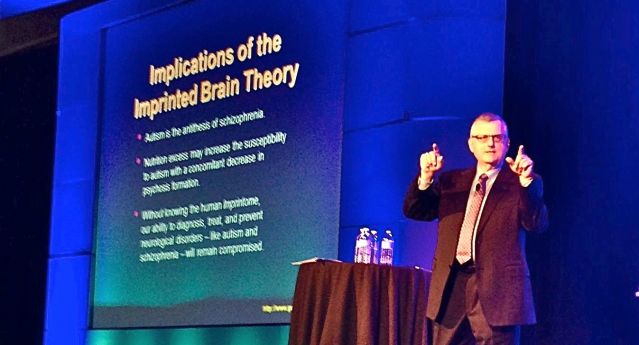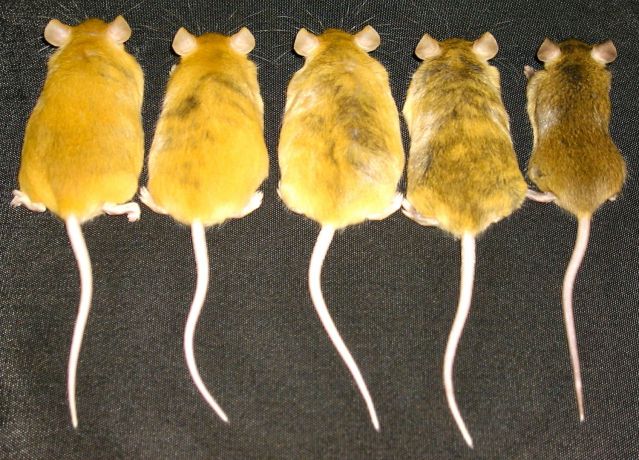Epigenetics
Linus Pauling Award Winner Discusses Imprinted Brain Theory
Leading epigeneticist, Randy Jirtle, cited this theory upon accepting his award
Posted July 11, 2014

At the end of May, Randy L. Jirtle, PhD received the Linus Pauling Functional Medicine Award and, as the photo above reveals, included some slides on the imprinted brain theory and its implications.
As the Institute’s press release points out, Dr. Jirtle previously headed the epigenetics and imprinting laboratory at Duke University, and is now a Professor of Epigenetics at the Department of Sport and Exercise Sciences, University of Bedfordshire, Bedford, UK, and a Senior Scientist at McArdle Laboratory for Cancer Research at the University of Wisconsin, Madison, WI.
The Linus Pauling Award has been presented by the Institute for Functional Medicine (IFM) since 1996 to clinicians and researchers whose work has pioneered important principles in the Functional Medicine model. Jeffrey Bland, PhD, IFM Chairman Emeritus, had this to say about Dr. Jirtle’s selection as the 2014 Linus Pauling Functional Medicine Award recipient:
He is an extraordinary discoverer who crossed the boundaries of disciplinary myopia to become the father of environmental epigenomics. I also call him the father of nutritional epigenetics because of the important observation he has made as to the role that nutrients play in developmental biology and modulating the epigenome’s expression into the phenotype. In his work at Duke, with his post-doctoral student Dr. Robert Waterland, they made what I would consider one of those frame-shifting, epic, seismic discoveries that the nutritional environment of the pregnant animal will influence the phenotypic outcome of the offspring.
Prof Jirtle was honored in 2006 with the Distinguished Achievement Award from the College of Engineering at the University of Wisconsin-Madison. In 2007, Jirtle was nominated for TIME Magazine’s “Person of the Year.” He was the inaugural recipient of the Epigenetic Medicine Award in 2008, and received the STARS Lecture Award in Nutrition and Cancer from the National Cancer Institute in 2009. He has published over 190 peer-reviewed articles, was a featured scientist on the NOVA television program on epigenetics entitled Ghost in Your Genes, and this year published two books on Environmental Epigenomics in Health and Disease.

One of Prof Jirtle’s many claims to fame derives from his discovery of the epigenetics of the agouti mouse (above), whose coloring is modified epigenetically by diet. This ground-breaking research has become a paradigm of environmental epigenetics and, as he points out in his lecture, has far-reaching implications for our understanding of human development and susceptibility to disease—including risk of mental illnesses such as autism and schizophrenia.
With the engagement of the interest of such prominent authorities as this, the imprinted brain theory is clearly beginning to gain a hearing where it matters most: among the leaders of the scientific community.
(With thanks and congratulations to Randy Jirtle. Photo at top courtesy Bonnie Jirtle.)


